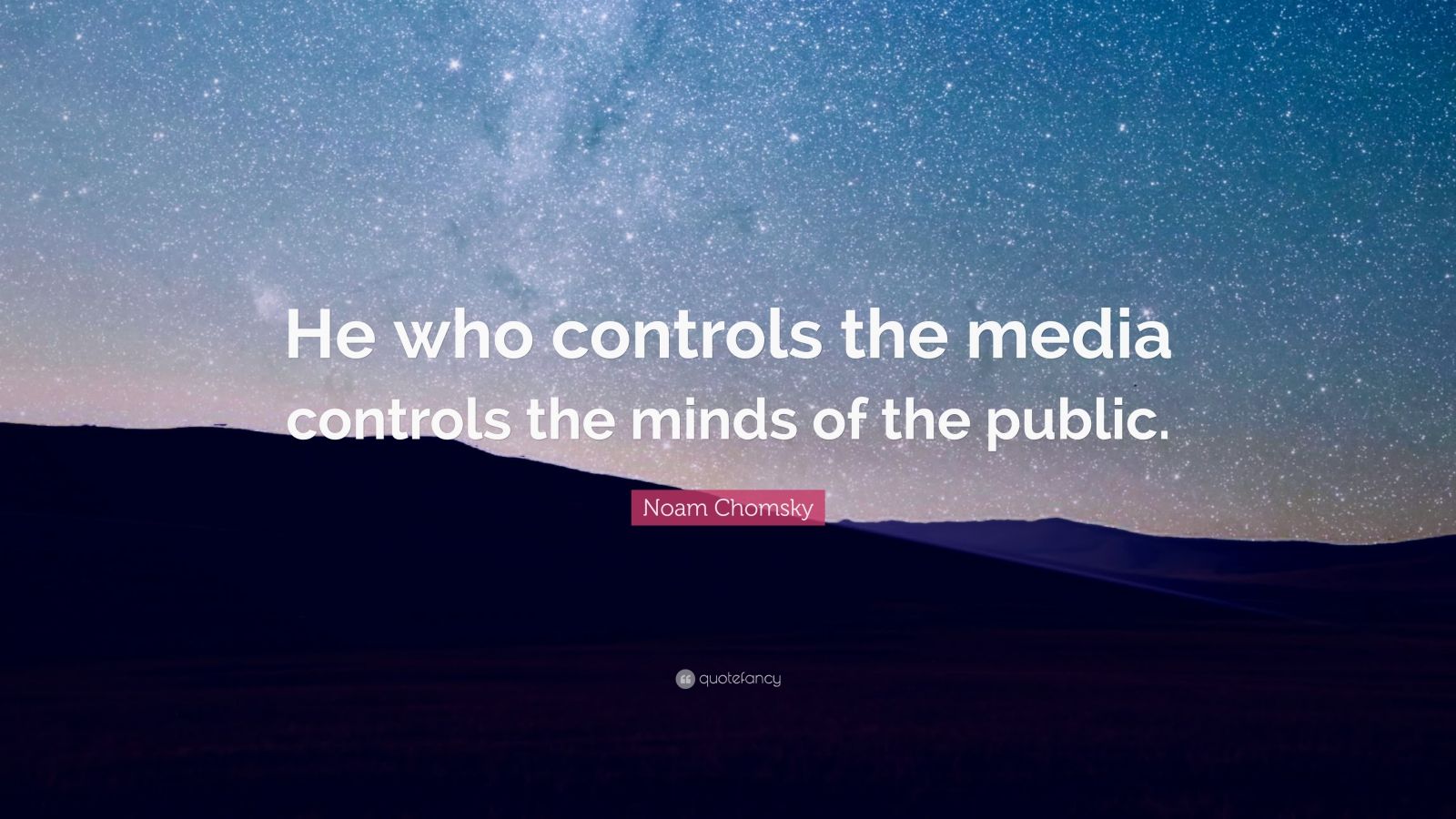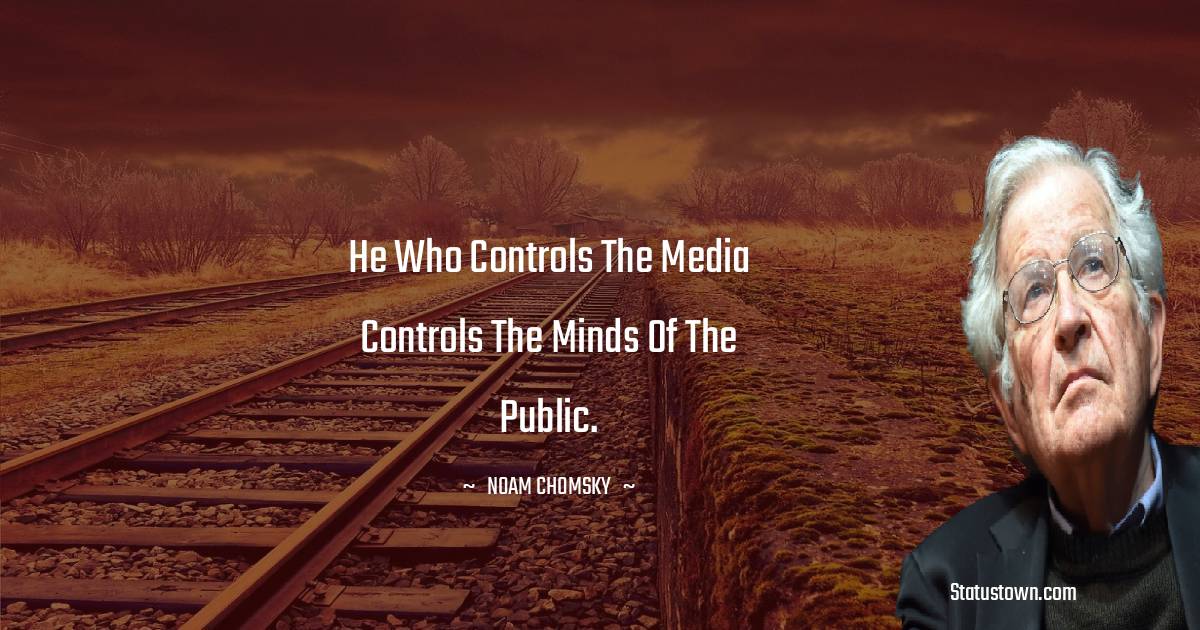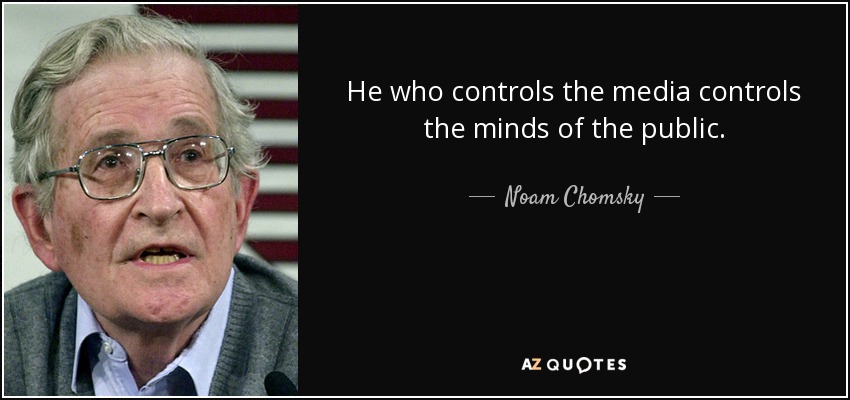
His first definition of a democracy is one in which citizens can “participate in a meaningful way in the management of their own affairs and the means of information are open and free” (Chomsky 9).īut his second definition of a democracy is one in which the majority of the population are reduced to passivity and information is controlled in a narrow ideological framework (Chomsky 10). He begins by asking his readers what kind of a democracy they want to live in (Chomsky 9). The Open Media Pamphlet Series, (2002): 1-27.In “Media Control: The Spectacular Achievements of Propaganda,” Noam Chomsky examines the development of propaganda in the United States.

Media control: The spectacular achievements of propaganda. Through intensified expository points, the author reveals how strategic propaganda has blinded the public from realizing they are indirectly denied a chance to participate in critical decision-making concerning the nation. ConclusionĬhomsky exposes how the political influence threatens democracy and participation of the bewildered herd. This reveal is made through a causal argument that suggests that the controlled media has played a significant role in deceiving the public of their freedom to participate in national matters. This supports his purpose as an author, which is to bring into perspective how politicians use the commoner to achieve their interests. In the book, specialized class individuals are portrayed as powerful and the ultimate decision-makers, while the bewildered herds are spectators and victims of cruel decisions.

Also, the “bewildered herd” is an idiomatic expression used in the book to add character and dynamism to the referenced.Īlso, the author divides his audience into two, one from the specialized class and the bewildered herd (Chomsky 3).

For instance, “Tear the Germans limb to limb, go to war and save the world” (Chomsky 1) is a phrase used to explain how Woodrow Wilson’s administration influenced the public through propaganda to destroy the perceived enemy. Chomsky’s explanation of concepts is descriptive with idiomatic expressions.


 0 kommentar(er)
0 kommentar(er)
